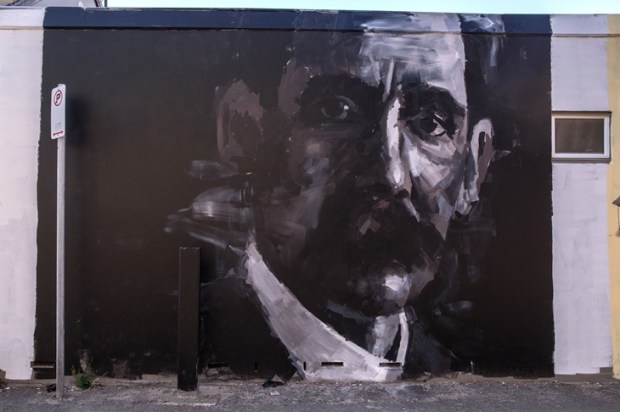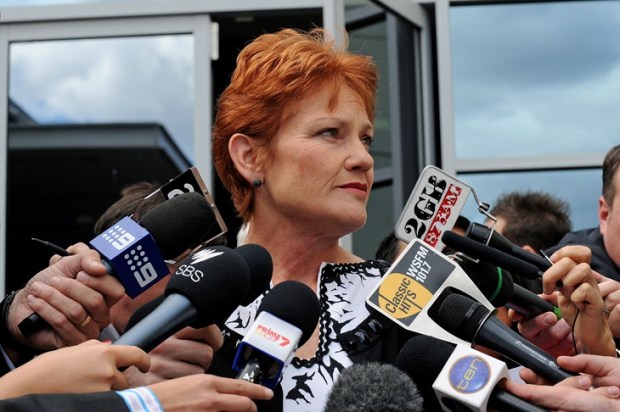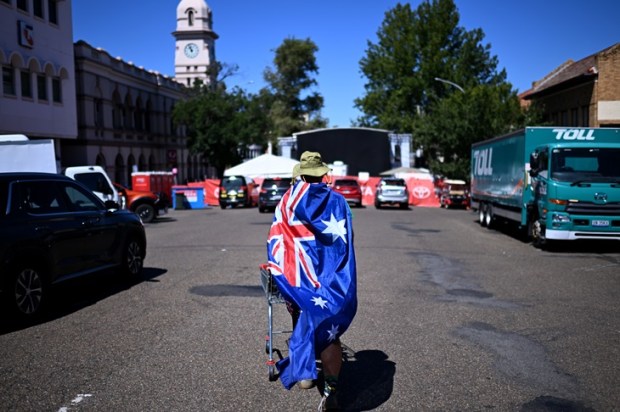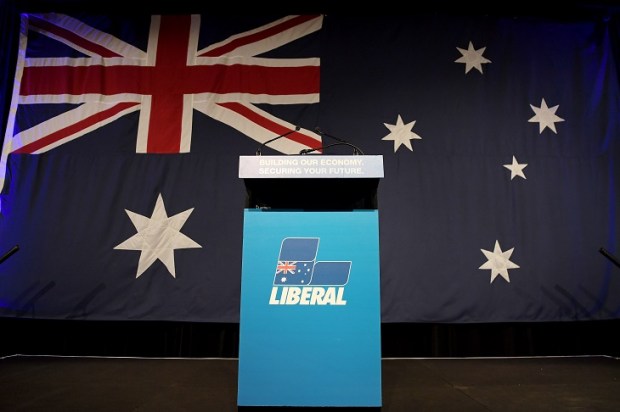George Orwell’s exploration of language manipulation and newspeak finds a disturbing parallel in Australian politics. Orwell wrote extensively about the abuse of the language and newspeak. In a perverse way, the political parties in Australia have relied upon the core principles and statements of their foundation beliefs, whilst simultaneously watching these hollowed out over the last 40 years.
This has been both dishonest and pragmatic, a reflection of the rise of the technocrat to political power. Leaders have increasingly been consigned to the dustbin as vested interests grew rich on the expansion of government and bureaucracy through, outsourcing, immigration, restricted work practices, barriers to entry, a slothful banking sector, and technology.
Seeping into the ‘wet wall’ of Western principles was a new set of values that allowed pretence to triumph over substance: underwritten by the language that still described the heart and soul of the political parties.
Shifts in ideas and therefore ideals are slow to emerge. There are minor cuts and abrasions to culture. Language and public policy are ignored and dressed in the bandaids of prudence, safety, or fairness. Much of this has to do with what Hume stated in his Moral Theory that all beliefs and all rational calculations are by themselves inert.
None of these things, which he includes under the heading of ‘reason’ in a broad sense, provides a motive for action, or for inaction either. Hume believed that motivation for action required passion. In the absence of a catalyst that a sudden or impending death would become only too obvious, the death of a thousand cuts provides no motivating force until the tipping point – the torpor-induced psychosis, reaches a point where the community are materially and noticeably worse off.
The political movements of the Liberal, Labor, and Greens no longer represent the constituency they did 40 years ago, although they stick with the nomenclature of their original names. Rod Liddle, of this paper, when discussing the use of the term ‘Liberal’ in its classic sense recently, noted a similar problem:
‘…that members are left behind, identifying with an appellation which now means almost the precise opposite of what they wish it to mean.’
As far back as the 19th Century, Nietzsche commented that the moral sentiments in question vary dramatically between historical periods, cultures, and even individuals, sometimes to the point of becoming inverted between one case and another.
So the parties in Australian politics have drifted, largely unaffected until the last decade, like the tectonic plates moving continents around the globe. They still dominate the two-party preferred voting system and although diminished, remain resistant to wholesale realignments other than at the core of old allegiances; the rich have taken the sententious moral high ground and the working class have become aspirational.
The Liberal Party has become the party of the aspirational workers, the brain-dead managers, and low-information voters. By abandoning many of its conservative principles, it has effectively become the old Labor Party. The party of Menzies, and its idealism, has given way to the craven pursuit and arcane findings of focus groups. Simple big ‘L’ liberal principles have been ransacked in the search for the middle ground, or worse, the embracing of the latest fad, hoax, or global thought bubble.
Similarly, the Labor Party abandoned its traditional values and instead became the Greens of the 1970s and 1980s. The Labor party decided that it needed to surf the edges of the environmental movement as Howard’s battlers jumped ship, now finding themselves struggling to win elections and, when they do, retain power. The Labor Party, once the champion of the working class, now finds itself courting the votes of inner-city professionals, academics, and the affluent ABC cadavers.
Unable to compete with the tectonic drift, the Greens of Bob Brown and the tree-huggers have become the hard-core socialists even at the expense of the environment. Long gone are the days of true environmental activism. Today it’s about cultural deconstruction and vandalising the market economy.
This is not limited to Australia, it’s prevalent in many of the Western democracies. It is particularly prevalent in Europe and had almost metastasised into the organs of the US, saved only by the acid wash of Donald Trump. The answer to why is probably trite. Although for some of us the rot was obvious years ago, the left have been enormously successful in exploiting an insidious anomie and the parties, dominated by a generation of career managers, technocrats, pollsters, poster boys, and angry women still fighting the Napoleonic wars.
The public has largely disengaged from politics, tuning in only at election time. The results have been a political landscape that is fragmented and chaotic, as seen in the rise of minor parties and independents.
When the lights go on at election time, they do what we all do in the middle of the night; they blink their way to the voting booth and leave the sleep in their eyes. The results in Australia have been the political equivalent of a bathroom mess.
The erosion of core principles, the misalignment of political parties with their constituencies, and the public’s disengagement have led to a political landscape that is in disarray. The stakes are high and the consequences of this are far-reaching. Despite this election being there for the taking, there is no Trump. The political landscape is still dominated by bumblers, equivocators, and vandals.
If we are honest we would at least congratulate the Greens for being so definite in their plan to destroy much of Australia as we know it, they deserve credit for that. The other two are scrambling to define a woman and regulate the family home.
For the real liberals, those who favour the core principles that have defined Western hegemony for 500 years, we aren’t left with much. A clutch bag of politicians with fractured affiliations, think tanks easily captured by money, billionaires saying the right things but politically naive and the mad people who see graphite in everything but a pencil.
Our plight is made even worse by the window into redemption we have just witnessed in the US and in the social and economic transformation of Argentina. We can see what we want, we now know it’s possible but we are paralysed, like that dream when you are running but in slow motion and nothing you do can make you go faster.
Political bravery transcends the realm of mere partisan allegiance. It is the unwavering commitment to principles and convictions, even when faced with fierce opposition or personal risk. It is the voice that speaks truth to power, the action that challenges the status quo and the stand that defends the rights and liberties at all costs.
In an era of political polarisation and echo chambers, political bravery is a beacon of hope and is not confined to elected officials or activists. It is a quality that can be embodied by any citizen who cares about the future of their community and country. It is the student who speaks out against injustice on campus and the voter who casts their ballot based on informed conscience rather than partisan loyalty.
In a world where political discourse is often dominated by cynicism and apathy, political bravery is a reminder that change is possible. It is the belief that one person can make a difference, we have our example but we need Dutton to channel him.

























